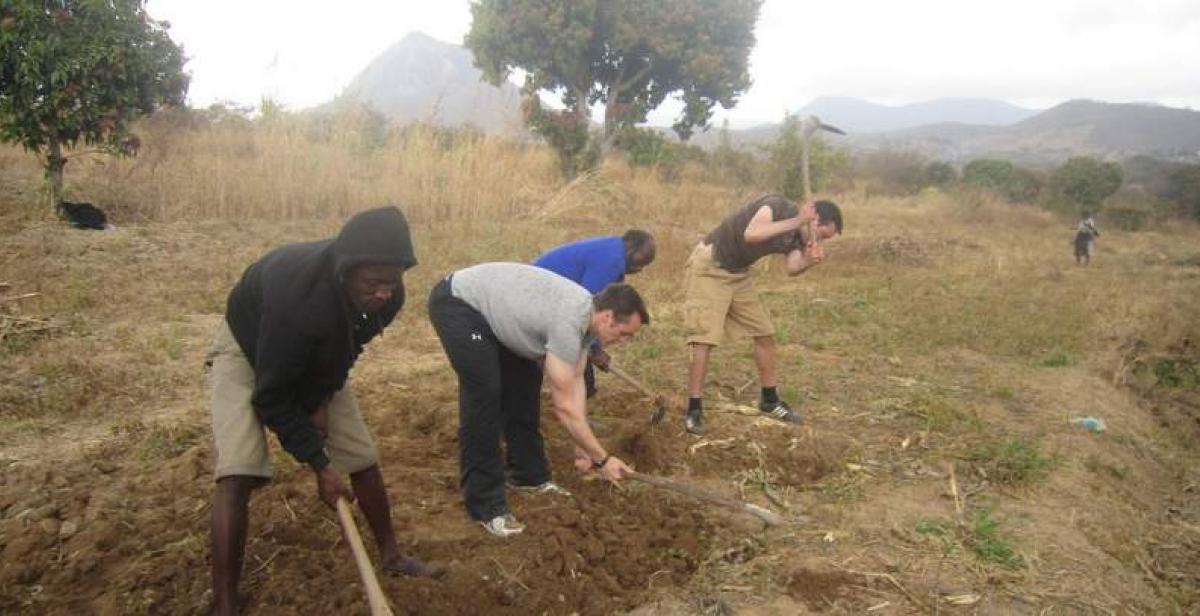Rarely do you have the opportunity to appreciate where your food comes from, until you grow it yourself. In previous weeks, we have harvested, picked, beaten, and then eaten beans.
This week we had the opportunity to grow our very own patch, due to the kindness of local support group leader, Mr Mandaringana. This included, as the picture above shows, the ploughing of the land through which we incurred many blister-related injuries! This process, from start to finish, took several hours. If completed with fewer than our group of ten, we can only imagine how laborious the process would have been!
As a result of our efforts, all the UK Progressio ICS volunteers gained a true appreciation of Mr Mandaringana, a man in his mid-60s, whose sheer energy levels far exceeded our own – entirely necessary when you consider the work required to maintain just a section of his extensive farmland’s produce.
Upon talking to Mr Mandaringana at the beginning of this process, he informed us of some of the challenges he faces when farming. Parts of these challenges were revealed when we were brainstorming ideas for produce on ‘our’ patch of land, with herbs being our suggestion. We soon discovered that there is a limited market for herbs and that they are not particularly profitable, whilst beans have a value of $1 for two moderately-sized mugs. A smaller patch of land also holds the benefit of producing a comparatively large yield of beans.
Through this discussion, other challenges were revealed: the accessibility of fertiliser and the climate being two prominent themes. The difficulty of the climate, in terms of heat and dryness, ensures that the beans take longer to germinate, increasing the growing time, and ultimately delaying profits.
The process, for something so small and largely taken for granted, was surprisingly lengthy. The land required preparatory watering, ploughing, ridging, and later beating, harvesting, washing and cooking. Cooking for 6-7 hours! If the whole process is considered, and its labour intensity, $1 for two cups full of beans begins to seem rather small.
After experiencing this process, from beginning to the very end, it is easy to say that the next time we walk into a supermarket and buy beans, we will appreciate the effort and energy required to produce this everyday staple.
By Progressio ICS volunteers in the Honde valley, Zimbabwe.
Photo: Progressio ICS volunteers Aidan Bruynsells and Daniel McLaren with in-country ICS Zimbabwe volunteers ploughing a field by hand.



